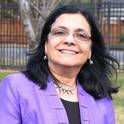I applaud Huey-li Li for opening a discussion on the connections between globalism and bioregionalism and their influence on the enterprise of contemporary education, for the issues have received hardly any attention from mainstream educational philosophers. Attempts to sloganize the global/local connections through bumper stickers that urge the public to “think globally, act locally,” have perhaps raised the public’s consciousness to get involved at the local level. However, the moral injunction of the first half of the slogan, that is, “global thinking,” is seldom addressed. Living in a complex and interdependent world, surely we would need to see the connections between local actions and consequences beyond the local, and vice versa. This intricate connection between the local and global, unfortunately, has resulted in a new term — “glocal” — coined to diminish even further, the distinctiveness of the “local” that bioregionalists hope to advance. Philosophers of education, I would urge, need to get involved in this long overdue discussion that Li’s essay invites. But, even as I applaud Li’s daring ventures, I do have some concerns about her lack of acknowledgment of the dilemmas associated with trying to reconcile and integrate the “global” (the megapolis) and the “local” in education. She rejects the incompatibility between bioregion-based education and the project of globalization even as she tries to promote the substantive and perceptual dimensions of the latter through concepts such as “global village” and “global localization.” Here, I will focus on two major points: (1) While spanning “space,” global education cannot accommodate the concepts of “place” and “time” that bioregional (or place-based) education does; and (2) In contrast to the monocultural project of globalization, bioregional education revitalizes both “cultural diversity” and “bio-diversity;” however, bioregional education, too, must be undertaken with caution for it can be subject to and limited by parochialism. Hence, I have argued elsewhere that a more appropriate moral injunction would be for bioregional educators to promote “ecological thinking.”
- Globalization,
- Bioregionalism,
- Huey-li Li -- Criticism and interpretation
Available at: http://works.bepress.com/dilafruz_williams/20/
